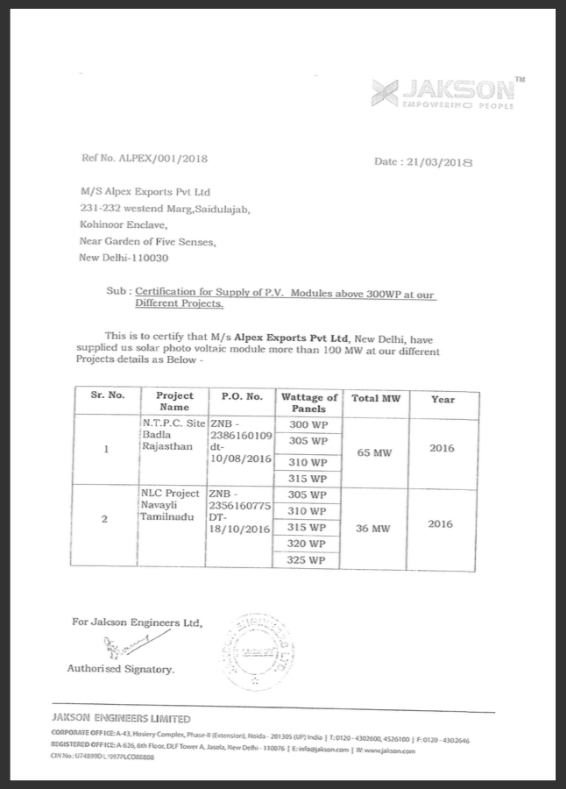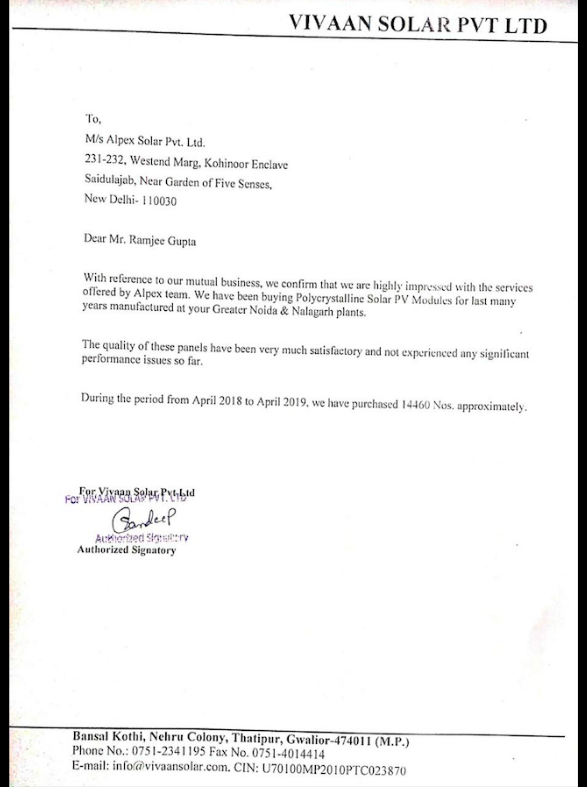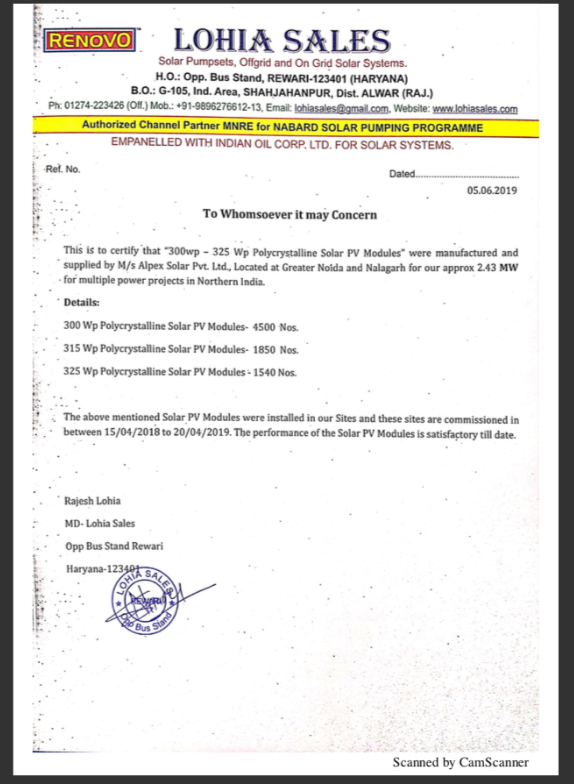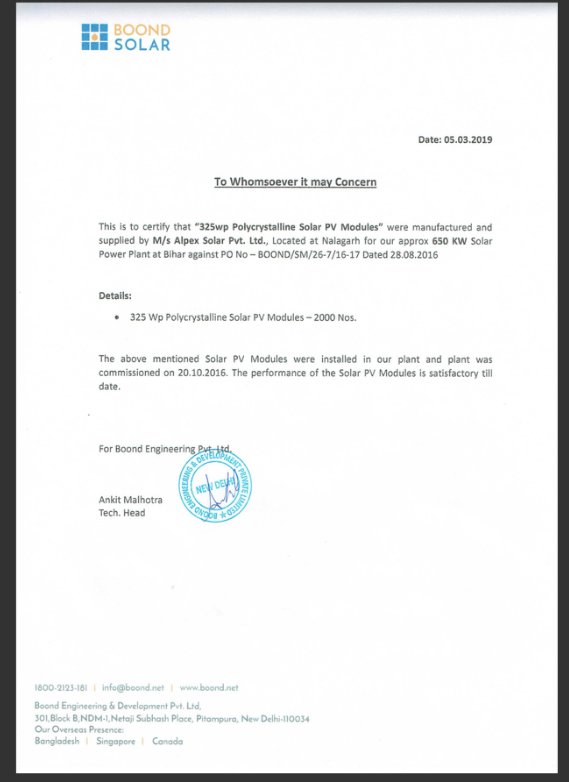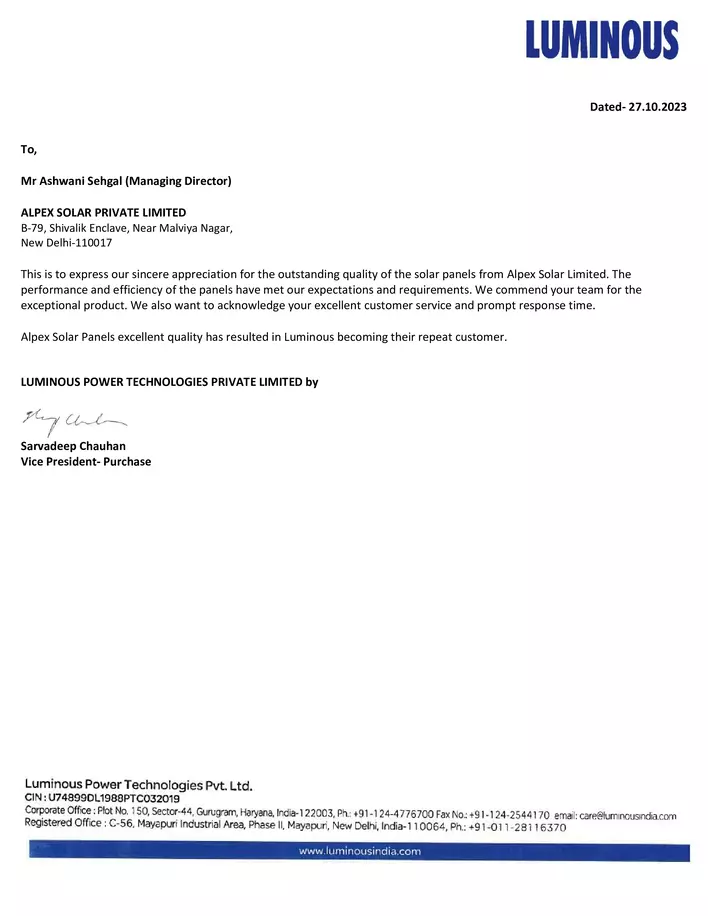Welcome To Alpex
Switch To Solar For
Transform your home with Alpex’s cutting-edge solar modules. Experience energy independence and substantial savings on your electricity bills.
Panel Installations
Experienced Engineers
Years of Experience
Customer Satisfaction
Solar Can Be Complex- We Simplify It For You

On Grid, Off Grid, Hybrid Solar
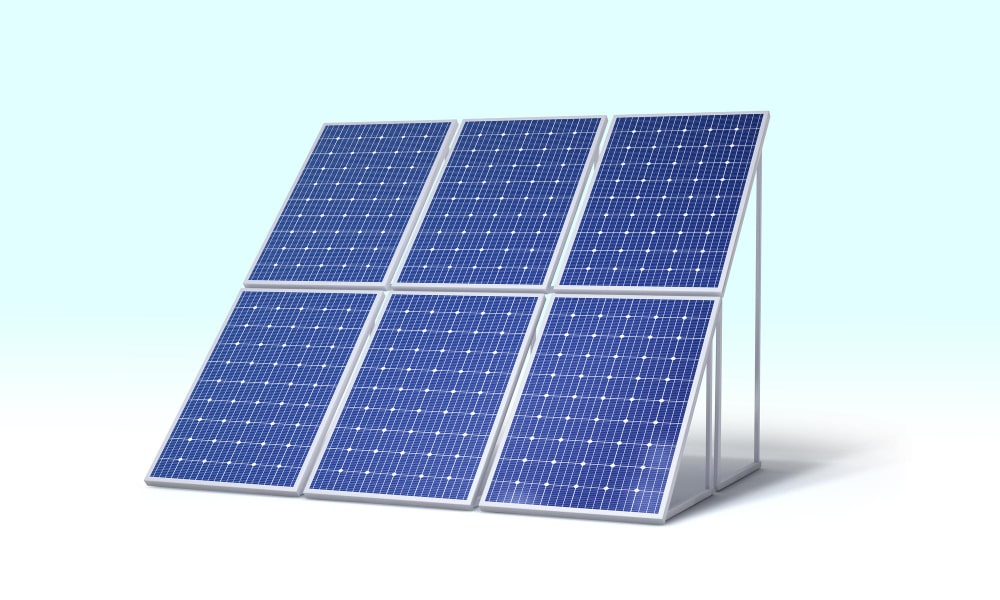
Types of Solar Cells
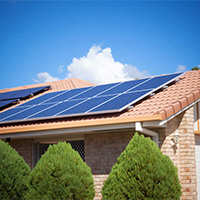
Different System Sizes

Solar Panels Based On Cost
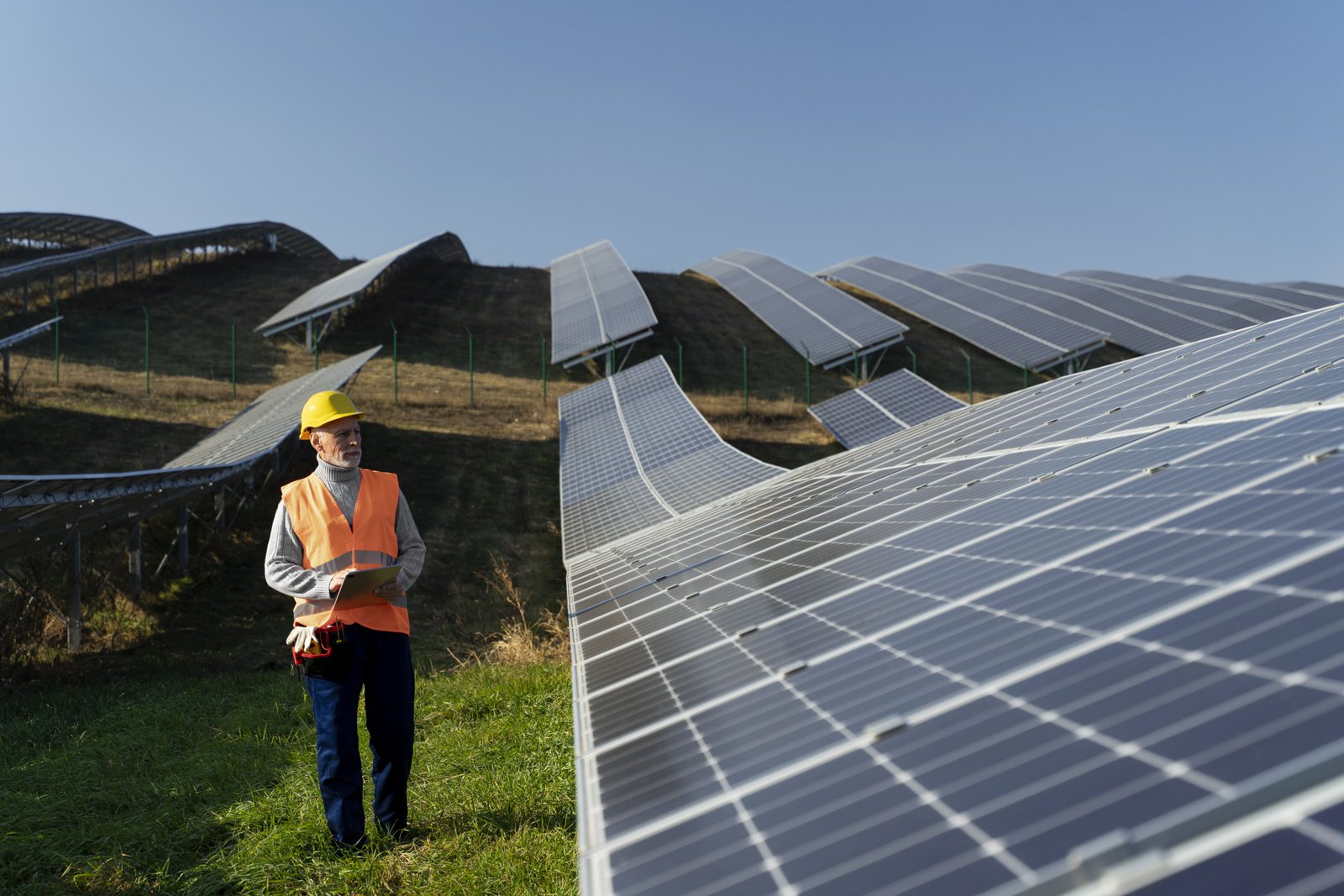
Panels for Your Power Needs

Best Panels For Your Space
Select Solar Based On Your Monthly Bill
Reduce your Electricity Bill to Zero with Alpex Solar Solutions. Take control of your energy costs for a sustainable future. Our customised solar solutions are designed to maximise your savings. Explore the options below to discover.
| Monthly Bill (₹) | System Size | Energy Produced (kWh/Year) |
Centre Government Subsidy for Residential Households* (₹) |
|---|---|---|---|
| 0 - 500 | 1 kw | 1,440 Units | 30000 |
| 500 - 1500 | 2 kw | 2,880 Units | 60,000 |
| 1000 - 2,000 | 3 kw | 4,320 Units | 78,000 |
| 2,000 - 4,000 | 5 kw | 7,200 Units | 78,000 |
| 4,000 - 7,000 | 7 kw | 10,080 Units | 78,000 |
| Above 7,000 | 10 kw | 14,400 Units | 78,000 |
* plus state subsidy as applicable
# Subsidy for GHS/RWA (Group Housing Society/ Residential Welfare Association) ₹ 18,000 per kW for common facilities including EV charging, up to 500 kW (@3 kW per house) with the upper limit being inclusive of individual rooftopplants installed by individual residents in the GHS/RWA
HOW WE WORK
At Alpex, we simplify your transition to solar with our seamless process. From consultation to installation, we handle everything, including subsidies and ongoing maintenance. Here are 5 simple steps we follow to bring solar power to your home.

In-Home Consultation

Solar Proposal by Project Manager

Assistance with Subsidy Applications

Installation & Grid Connection Setup
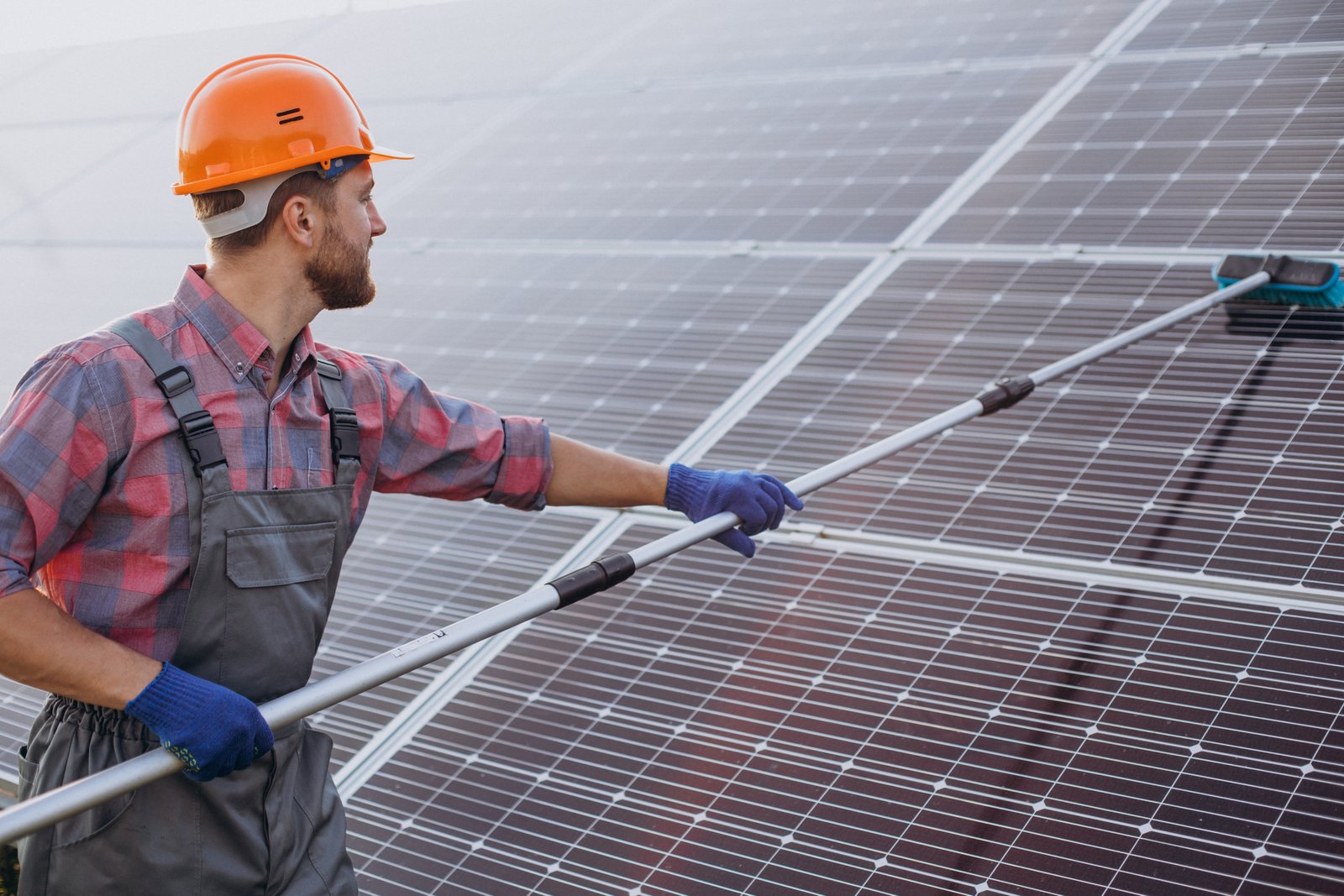
Deep Cleaning and Maintenance
We MANUFACTURE. We INSTALL.
No Middleman. No False Warranties.
Request Free Consultation
WHY CHOOSE ALPEX SOLAR
Your Trusted Partner in Home Solar
Solutions
- India's most trusted solar manufacturer
- Wide range of high-performance solar panels
- Best customer and technical support
- Dedicated App for system monitoring
- 5 Year onsite warranty
- Strong module structure to withstand even cyclones

WHY GO SOLAR
Invest Once, Save for a Lifetime
Slash electricity bills up to
100%
3-5 year payback
period
25+ year system
lifespan
Energy
Independence
Minimal maintenance
needed
Government subsidies
available
Take the First Step Towards a Greener Home!
OUR CLIENTS
Our Client list boasts of most esteemed customers in India and abroad who have been associated with Alpex over the decades.
TESTIMONIALS
What Our Customers Say
GET IN TOUCH
Power Your Home With Alpex Solar
FAQs
OVERVIEW OF ROOFTOP SOLAR PANELS
Rooftop solar panels are an increasingly popular choice for homeowners looking to reduce their energy bills and carbon footprint. By converting sunlight to generate electricity, these panels provide a sustainable and cost-effective power source.
With advancements in technology, installing solar panels on your home has become more accessible and efficient than ever. Homeowners can choose from various types of solar cells and system sizes, depending on their energy needs, budget, and available space.
Whether you are looking to go entirely off-grid, stay connected with the grid, or opt for a hybrid system, this article will help you make the correct decision that suits your needs.
Types of Solar Systems: On-Grid, Off-Grid, and Hybrid
When installing solar panels, one of the first decisions you will need to make is whether to go with an on-grid, off-grid, or hybrid system:
- On-Grid Solar Energy Systems: These systems are connected to the local utility grid. It allows you to draw electricity when your panels aren't producing enough. You can also send excess power back to the grid when excess and get credits. Also, these systems often qualify for government subsidies, making them more affordable and further reducing your electricity costs.
- Off-Grid Solar Systems: These systems work independently of the main electricity grid, storing excess energy in batteries for use during the night or on cloudy days. They offer complete energy independence but usually require a higher initial investment due to the need for batteries and also because government subsidies for off-grid systems are generally not available.
- Hybrid Solar Systems: A hybrid system combines the benefits of both on-grid and off-grid systems. It is connected to the grid but also includes battery storage to ensure power availability even during grid outages. This offers the flexibility of using solar power, grid power, and stored energy, making it a reliable choice for most homeowners.
Types of Solar Cells: Polycrystalline, Monoperc, Bifacial, and Topcon
The type of solar cell you choose will impact the efficiency, cost, and overall performance of your solar system:
- Monoperc Solar Cells: These are an advanced type of monocrystalline cells with a passivated rear side, which improves efficiency by reflecting unused light back into the cell. Monoperc cells are more efficient than traditional monocrystalline cells and are a popular choice for homeowners looking for high performance.
- Polycrystalline Solar Cells: Made from multiple silicon crystals, these cells are widely available and generally more affordable. Although they are slightly less efficient than monocrystalline cells, they provide a good balance between cost and performance.
- Bifacial Solar Cells: These cells can capture sunlight on both sides, making them more efficient in certain conditions, such as on reflective surfaces. Bifacial panels are ideal for areas with ample sunlight and space but are typically more expensive than standard panels.
- Topcon Solar Cells: Topcon (Tunnel Oxide Passivated Contact) cells are a newer technology that offers higher efficiency and better performance in low-light conditions. They are a premium option, best suited for those looking to maximize energy production. However, their advanced technology typically comes with a higher cost compared to traditional solar cells.
Choosing Solar by System Size: 3kw, 5kw, 7kw, 10kw
The size of your solar system will depend on your energy consumption, budget, and available roof space. Here is a breakdown of common system sizes:
- 3kw System: Suitable for small households with low energy consumption. It can power essential appliances such as a refrigerator, lights, a television, and a washing machine, and typically saves around 50% on electricity bills.
- 5kw System: Ideal for medium-sized households. It covers most of the electricity needs for a typical family, including appliances like a refrigerator, washing machine, air conditioner, and multiple lights and electronics.
- 7kw System: Best for larger households with higher energy demands. This system supports a range of appliances such as multiple air conditioners, a larger refrigerator, several lights, and other high-power devices, offering significant savings and potentially covering all your electricity needs.
- 10kw System: Suitable for very large homes or properties with high energy usage. It can handle extensive energy needs, powering multiple high-demand appliances like several air conditioners, large refrigerators, and numerous electronic devices, providing a robust solution for those seeking maximum energy independence.
| System Size | Daily Generation (Units) | Suitable For |
|---|---|---|
| 3 kw | 12-15 | Small Households |
| 5 kw | 20-25 | Medium Households |
| 7 kw | 28-35 | Large Households |
| 10 kw | 40-50 | Huge households or properties with high energy needs |
Choosing Solar by Cost
The cost of your solar installation will vary depending on the type of system, size, and the quality of components. Here is what to consider:
- Budget Systems: If you are looking to minimize upfront costs, you might opt for polycrystalline panels with a smaller system size, like 3kw or 5kw. While these systems are less efficient, they are more affordable.
- Mid-Range Systems: Monoperc panels offer a good balance of efficiency and cost. A mid-sized system like 5kw or 7kw with these panels can provide excellent value.
- Premium Systems: For those willing to invest more, bifacial or Topcon panels in a 7kw or 10kw system size offer the highest efficiency and long-term savings.
Remember, investing in a higher-quality system may cost more initially, but long-term savings and increased energy production can make it worthwhile.
Choosing the Right Solar System for Your Power Needs
To find the best solar system for your home, start by calculating your daily energy consumption in kilowatt-hours (kwh). Add up the energy use of all your household appliances to determine your total daily consumption:
- For daily consumption up to 3 kwh, a 1 kw solar system is typically sufficient, generating about 4 kwh per day under optimal conditions.
- For daily consumption between 3 kwh and 5 kwh, a 2 kw solar system is recommended. It produces around 8 kwh per day, covering your energy needs and providing some extra power.
- For daily consumption between 5 kwh and 7 kwh, a 3 kw solar system will be ideal, generating about 12 kwh per day, which should comfortably meet your needs and offer substantial savings.
- For daily consumption above 7 kwh, consider a 5 kw system or larger. A 5 kw system produces approximately 20 kwh per day, making it suitable for larger households or higher energy demands.
By matching your daily energy consumption with the appropriate solar system size, you can ensure adequate power supply and maximize your savings.
Choose Solar for Your Space
When selecting a solar system for your space, consider both your energy needs and the available installation area. Here’s a guide to help you choose the right system based on the space you have:
- Limited Space (up to 10 square meters): For smaller areas, a 1 kw solar system is typically a good fit. It requires about 8-10 square meters of roof space and generates around 4 kwh of electricity per day.
- Moderate Space (10-20 square meters): If you have a bit more room, a 2 kw solar system is ideal. It needs approximately 16-20 square meters of space and produces around 8 kwh of electricity per day.
- Ample Space (20-30 square meters): For larger spaces, a 3 kw solar system is recommended. It requires around 24-30 square meters of roof area and generates about 12 kwh of electricity per day.
- Extensive Space (30+ square meters): If you have plenty of space, consider a 5 kw solar system or larger. It needs over 40 square meters of space and produces approximately 20 kwh of electricity per day.
By evaluating the available space and matching it with the appropriate solar system size, you can optimize your installation for both energy needs and available areas.
Conclusion
Installing a home solar system is a significant investment that can yield substantial long-term benefits. By carefully considering the type of system, solar cell technology, system size, cost, and your specific energy needs and space, you can ensure that your solar installation meets your expectations and provides a sustainable energy solution for years to come.
Whether you are aiming to reduce your energy bills, minimize your carbon footprint, or gain energy independence, the right solar system can help you achieve these goals.
Read less

















